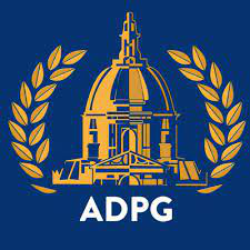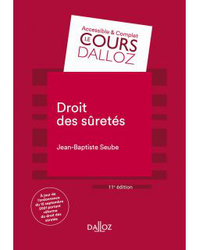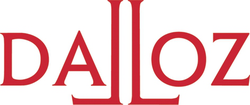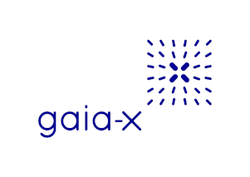The recent news
June 8, 2022
Thesaurus
Référence complète : V.-A. Chappe, R. J. Morival et O. Leclerc (dir;), Faire preuve : pour une analyse pragmatique de l'activité probatoire, dossier, Droit et Société, 2022/1, présentation, p.7-20.
____
May 9, 2022
Publications

► Référence complète : Frison-Roche, M.-A., Notes prises pour la synthèse sur le vif de la conférence L'office du juge et les causes systémiques, in Cycle de conférences, Penser l'office du juge, Grand Chambre de la Cour de cassation, 9 mai 2022, 17h-19h.
____
► Résumé des notes prises au fur et à mesure de la conférence : les trois juges, Christophe Soulard, Président de la Chambre criminelle de la Cour de cassation, Fabien Raynaud, Conseiller d'Etat, et François Ancel, Président de la Chambre internationale de la Cour d'appel de Paris, invités à réfléchir et réagir à une hypothèse, à savoir l'existence parmi les cas qui leur sont apportés par les parties, sont intervenus à la fois d'une façon très diverse, très originale et exprimant pourtant l'unicité de l'art de juger.
Les notes prises ci-dessous montrent que les juges ont conscience que les temps ont changé et que, de plus en plus, les "systèmes" sont présents dans les causes qui, construites par les parties, leur sont présentées (1). Leurs analyses, réactions et propositions ont montré à ceux qui les écoutaient que pour appréhender des causes systémiques, les juges doivent être expérimentés (2). Ils ont eu souci de fixer des critères pour identifier la nature systémique des causes parmi la multitude de celles qu'ils traitent, justifiant alors un traitement procédural et décisionnaire particulier (3). L'auditoire a ainsi pu mesurer la part qui revient aux parties (4), puisque le système est dans la construction des faits de la cause et la part qui revient à l'office du juge (5).
Il apparaît alors que par un effet de miroir, l'office du juge se déplace de l'Ex Post vers l'Ex Ante (6), les trois juges décrivant et proposant des mécanismes concrets pour appréhender en Ex Ante cette dimension systémique et y répondre (7). Ils soulignent que cela s'opère en collaboration avec les avocats, dans une instruction élargie et le débat contradictoire (8), dans une collaboration qui s'opère en amont (9). Les trois magistrats ont recherché les techniques procédurales pour accroître la plus grande considération des systèmes (10) et les nouvelles organisations à mettre en place pour répondre à cette dimension systémique de certaines causes (11). Pour ce faire, une dialectique est à opérer vers, à la fois, de l'informel mais aussi plus de formel (12), l'ensemble produisant une meilleure réception méthodologique des systèmes par les juges (13) par une plus grande compréhension entre les juges, quel que soit leur niveau et les droits substantiels en cause, les autorités et les parties systémiques (14).
____
🎥Voir la vidéo de l'ensemble de la conférence
🎥 Voir la vidéo de la synthèse réalisée sur le vif par Marie-Anne Frison-Roche au terme de la conférence
____
📝Lire l'article de Marie-Anne Frison-Roche rendant compte au Dalloz de la conférence.
____
🚧 lire le document de travail L'hypothèse de la "cause systémique, réalisé préalablement à la conférence, pour préparer celle-ci.
_____
✏️ lire les notes exhaustives prises pendant la conférence⤵️
May 9, 2022
Conferences

► Référence complète : Frison-Roche, M.-A., L'hypothèse des causes systémiques, in L'office du juge et les causes systémiques, in Cycle de conférences, Penser l'office du juge, Grand Chambre de la Cour de cassation, 9 mai 2021, 17h-19h.
____
📅 voir la présentation générale de la conférence.
►Place de l'intervention dans la conférence : la conférence générale s'articule sur l'intervention d'introduction qui pose ce qu'est une cause systémique, hypothèse à partir de laquelle interviennent trois juges, Christophe Soulard, Fabien Raynaud et François Ancel, qui réfléchissent et débattent entre eux sur cette hypothèse.
L'hypothèse est qu'au-delà et à travers la diversité des contentieux et des causes qui sont soumises aux juges les plus divers, il existe une catégorie de causes qui ont en cause d'être systémiques, c'est-à-dire de contenir dans ce qui est soumis au juge pour résolution un système. Si une telle catégorie existe, ce qui pose d'ailleurs la question de la diversité des systèmes et la difficulté née de leur soumission à des règles qui ne sont pas juridiques (par exemple des "lois" économiques, biologiques, financières, etc.), alors le juge devrait en tenir compte, et dans la procédure et dans le jugement qu'il porte sur la cause et dans la façon dont il restitue ce jugement.
____
🎥Voir la vidéo de l'ensemble de la conférence
🎥Voir la vidéo de l'intervention de Marie-Anne Frison-Roche présentation l'hypothèse des causes systémiques
🎥 Voir la vidéo de la synthèse de la conférence par Marie-Anne Frison-Roche
____
Lire les slides à l'appui desquelles l'intervention a été faite.
► Résumé de l'intervention :
____
🚧Lire le document de travail sur lequel est basée l'intervention
________
April 15, 2022
Conferences

 ► Référence complète : Frison-Roche, M.A., La fonction sociale du Droit de la Compliance, Table-ronde "Les nouvelles formes d'un Droit embrassant son rôle de régulation", in📅Association du Master de Droit privé de Paris I (ADPG), Le rôle de régulateur social du Droit privé, Paris, 15 avril 2022.
► Référence complète : Frison-Roche, M.A., La fonction sociale du Droit de la Compliance, Table-ronde "Les nouvelles formes d'un Droit embrassant son rôle de régulation", in📅Association du Master de Droit privé de Paris I (ADPG), Le rôle de régulateur social du Droit privé, Paris, 15 avril 2022.
____
📅Lire le programme général du colloque
____
► Présentation générale de la conférence : En raison de la conception générale de la journée, ancrée dans le "Droit privé", mais qui oscillait en permanence sur la définition générale de ce qu'est la "régulation sociale" et qui est constitué depuis plus de vingt ans dans une branche du Droit spécifique, le Droit de la Régulation, parce qu'on m'avait demandé de présenter La fonction sociale du Droit de la Compliance, à un public sans doute peu averti du Droit économique, j'ai procédé de la façon suivante :
Je suis partie du souci actuel accru de savoir si le Droit peut avoir une part pour contenir les forces qui régissent le monde et s'y affrontent. Je suis partie de deux cas pratiques. Le premier irait plutôt vers une réponse positive, est celui de l'adoption en cours du Digital Services Act, législation européenne de Compliance qui utilise la puissance des opérateurs numériques cruciaux qui prévenir et lutte contre la haine et la désinformation dans l'espace numérique. Le second cas pratique qui débute est la possible prise de contrôle de Twitter par Elon Musk, opérée par celui-ci au nom de la "Démocratie" et pour l'instant le peu de contrôle que le Droit en cas.
A partir de de ces deux exemples, j'ai repris la définition du Droit de la Compliance, qui n'est pas la procédure par laquelle certains opérateurs devraient montrer qu'ils respectent la totalité des règles qui leurs sont applicables mais qui est substantiellement défini par des buts monumentaux substantiellement voulus posés par le Politique qui trouvent des alliés, volontaires ou contraints, en position de le faire. Ce Droit Ex Ante porte sur le futur, est de nature systémique et utilise des moyens qui traversent toutes les branches du Droit, notamment le contrat et la responsabilité.
Le Droit de la Compliance est le prolongement du Droit de la Régulation. Il opère une régulation sociale et présente trois caractéristiques. Il est forcément mondial. Il est forcément politique. Il est forcément humain.
____
Pour aller plus loin⤵️
📝Le droit de la Régulation, 2001
📝Le Droit de la Compliance, 2016
April 13, 2022
Editorial responsibilities : Direction of the collection "Cours-Série Droit privé", Editions Dalloz (33)

Complete reference: Seube, J.-B., Droit des sûretés, Coll. "Cours Dalloz-Série Droit privé", 10th éd., Dalloz, 2020, 273 p.
Professor Jean-Baptiste Seube just released the 10th ed. of his book on Law of Security Interests.
A security interest gives the creditor an additional chance to get paid. Full of property law and contract law, securities law strikes a balance between protecting the interests of creditors and interest expense. The manual gives the characteristic features of personal guarantees and guarantees given on things.
This Course is 273 pages.
To read (in French) the cover back
To read (in French) the table of contents.

Updated: April 4, 2022 (Initial publication: Oct. 4, 2021)
Publications

🌐follow Marie-Anne Frison-Roche on LinkedIn
🌐subscribe to the Newsletter MAFR. Regulation, Compliance, Law
____
► Full Reference: M.-A. Frison-Roche, The Hypothesis of the category of Systemic Cases brought before the Judge, Working Paper, October 2021 and April 2022.
____
► This working paper has served as the basis for an introductory speech 🎤L'hypothèse de la catégorie des causes systémiques (The Hypothesis of the cateory of Systemic Cases), in a more general conference which I coordinated and moderated, 🧱L'office du juge et les causes systémiques, which is part of a general cycle covering Penser l'office du juge, specific conference attending the 9th May 2002 into the Grand Chamber of the Cour de cassation.
This Working Paper was drawn up in October 2021 to build the conference on the assumption that among the diversity of "cases" brought to the courts by litigants, some constitute a specific category: "systemic cases", justifying treatment that is both specific (in that they are systemic, calling in particular for procedural solutions common to all and distinguishable from the treatment of non-systemic cases) and common treatment beyond the diversity of judges who deal with them (judicial and administrative judges, criminal and non-criminal judges, French and non-French judges, judges of the member-States legal orders and European Union judges, etc.).
This working paper does not aim to deal with the whole subject, i.e. both to determine this category of "systemic causes" and the consequences that must be drawn from it for the judge's office, since that is the very purpose of the conference, which is built around several presentations: it aims to deal with the first part of the subject, i.e. the very existence of this new processual category, which is "systemic causes", leaving for other work the practical consequences to be drawn from it in the processual treatment that it calls for.
____
📝This Working Paper is also the basis of a forthcoming article
____
► Summary of the Working Paper: xx
________
Read below the developments⤵️
March 31, 2022
Publications

♾️ follow Marie-Anne Frison-Roche on LinkedIn
♾️ subscribe to the Newsletter MAFR Regulation, Compliance, Law
____
► Full Reference: FM.-A. Frison-Roche, La responsabilité ex ante, pilier du droit de la compliance ("Ex-Ante Responsibility, Compliance Law Pillar"), D.2022, chronique MAFR - Droit de la Compliance, Recueil Dalloz, March 31, 2022.
____
► Article English Summary: The Law must help to face the future, which can be totally catastrophic in terms of climate and digital issues. Courts are s best placed for this, without “governing”, only relying on the commitments made by companies, governments, and legislators. On the ordinary Tort Law, court decisions oblige these different entities to be consistent in the commitments they have made, obliging them to act in the future, formal “compliance” with the regulations cannot be sufficient. This ex-ante responsibility, founding the powers, thus constitutes a pillar of a substantial Compliance Law, showing the part that CSR and the companies with a raison d'être play in it.
____
📝 read the article. (written in French)
____
📚go to the presentation of the other articles published in this Chronique Droit de la Compliance made in the Recueil Dalloz.
________
March 31, 2022
Conferences

 ► Référence complète : Frison-Roche, M.A., Ex-Ante Compliance, in Gaia-X, Towards Automated Compliance in the Data Economy, 31 mars 2022.
► Référence complète : Frison-Roche, M.A., Ex-Ante Compliance, in Gaia-X, Towards Automated Compliance in the Data Economy, 31 mars 2022.
_____
► Voir le programme (en anglais)
____
► Présentation générale de l'intervention : (en anglais)
This intervention before the Board of Gaia-X is built on four observations about the evolution of the European legal system, showing how it is in favor of Gaia-X, articulated with an article on Ex Compliance Law and Labelling mechanisms, co-written with Martine Gourié and Hubert Tardieu.
The principal idea of this speech is to show that if Competition Law and Compliance Law are two different branches of Law, they are articulated. More now than before, and certainly they will be increasingly articulated.
As I shall show it, the European Institutions develop both as two pillars, notably through the Digital Markets Act (DMA) for Competition Law and the Digital Services Act (DSA) for Compliance Law.
The European Union does not have to choose between Compliance and Competition: the European space is built on both, for instance Flexibility through the principle of free Competition and Sustainability through the principle of Compliance.
The speech develops 4 remarks.
1. Compliance Law is not appropriation of legal rules by private sector. The first principles are always made by Legislators (European and National public rule makers, in our case) and everything must always be challenged before courts.
2. Competition Authorities want to increase the efficiency of Competition Law, bringing Competition Law to Compliance Law. They always do (see European Commission, Compliance matters, 2013). Moreover, this is the object of the Digital Markets Act, putting Competition Law from Ex Post to Ex Ante concernant the digital space. It is a revolution, but the purpose of Competition Law does not change: Compliance Legal tools are implemented by this so important Act, but it is always free and fair competitive markets. The purpose is to obtain to obtain more efficiency without change the substantial goal.
3. But the European Union is moving to a more substantial Compliance Law, by the Digital Services Act, the twin of the DMA. This more political text wants to impose safety in the digital space and protect users' rights in Ex Ante, by Compliance. This is a Monumental Goals, to obtain a European sovereignty. This political ambition is served by the private sector. It is impossible to apprehend DMA without consider DSA: they are twins. Their articulation will be protected by courts and explained to them.
4. They illustrated a more general European evolution. Two examples: the Trans-Atlantic Data Privacy Transfer Framework, articulating free flow of data and effective protection of individuals, and the proposal of European directive for a Corporate Sustainability Due Diligence, with Compliance Ex Ante mechanisms, public authorities helping and supervising private sector fighting human rights' violations and climate change in the perspective of sustainable economy.
Because at the end of the day, the future of Europe is in common values, protected by courts.
____
Pour aller plus loin⤵️